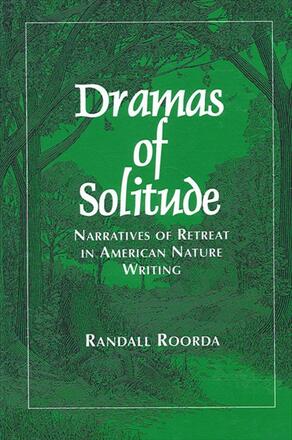
Dramas of Solitude
Narratives of Retreat in American Nature Writing
Alternative formats available from:
Brings the insights of narrative theory to bear upon the genre of nature writing, to explore the social or ethical purposes of solitude in stories of retreat in nature.
Description
What do stories of nature tell us about the social or ethical purposes of solitude? And what do stories of solitude reveal of the "character" of nonhuman nature? Dramas of Solitude brings the insights of narrative theory to bear upon the genre of nature writing, to explore the social or ethical purposes of solitude in stories of retreat in nature.
Through discussions of texts by Henry D. Thoreau, John C. Van Dyke, Wendell Berry, and student writers, among others, this book complicates social views of literacy with depictions of a solitude held in dynamic relation to a not-only-human community. It will inform the efforts of literary critics and writing teachers alike who hope to reintegrate English studies upon ecological terms.
Randall Roorda is Assistant Professor of English and Director of Composition at the University of Missouri-Kansas City.
Reviews
"…this study opens up lines of inquiry that promise fruitful future scholarship and is, in itself, an enormous contribution to contemporary ecocriticism and the future of nature writing in general education." — Interdisciplinary Studies in Literature and the Environment
"Roorda's extended discussion of key nature writings provides a fresh interpretive perspective that illuminates these writers' visions in exciting and intellectually engaging ways. Roorda's careful, close readings and intellectual engagement prompt readers to revisit these texts from new and significant critical angles. The author's insightful discussions of the ethical dimensions of nature writing is fascinating." — John S. Lofty, author of Time to Write: The Influence of Time and Culture on Learning to Write
"Besides the exquisite writing, it is quite interesting to see a piece that prompts a creative discourse about the way we have displaced nature to the periphery of culture through our inability to think of nature as the 'place' wherein culture resides." — Mary Abascal-Hildebrand, University of San Francisco